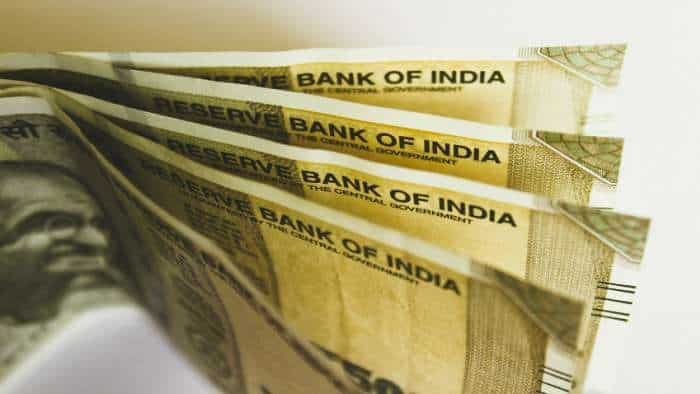FD vs RD: What is the difference between fixed deposit and recurring deposit? How do they work?
FD vs RD difference: Both fixed deposits and recurring deposits have their own set of advantages and limitations. Understanding the key differences between the two will help you make an informed decision based on your financial goals and risk appetite. Whether you choose an FD or an RD, it is essential to assess your investment needs and consult with a financial advisor to make the right choice for your financial future.
)
Fixed deposit (FD) vs recurring deposit (RD): Fixed deposits (FD) and recurring deposits (RD) are two common fixed income instruments that individuals often consider while parking funds for a guaranteed return that grows their money safely. Both FD and RD offer a safe and secure way to grow savings, but they have distinct features and benefits. Here are 10 things to know to understand these effective and popular instruments better:
1. What is a fixed deposit (FD)?
A fixed deposit is a financial instrument offered by banks and financial institutions where you deposit a lump sum amount for a fixed tenure at a predetermined interest rate. The interest rate for FDs is generally higher than that of savings accounts, making it an attractive option for individuals looking to earn a fixed return on their investment.
2. What is a recurring deposit (RD)?
On the other hand, a recurring deposit is a type of savings scheme where you deposit a fixed amount of money at regular intervals (monthly) for a predetermined period. RDs are ideal for individuals who want to save a specific amount regularly and earn interest on their savings.
3. FD interest rate vs RD interest rate
One of the key differences between FD and RD is the way interest is calculated. In FDs, the interest is calculated on the entire principal amount deposited at the beginning of the tenure. In contrast, RDs calculate interest on the accumulated amount at the end of each month.
4. FD investment tenure vs RD investment tenure
FDs typically have a fixed investment tenure ranging from a few months to several years. Once you invest in an FD, the money is locked in for the specified period, and you cannot withdraw it without incurring a penalty. In comparison, RDs have a fixed tenure as well, but you can withdraw the accumulated amount at any time without any penalty.
ALSO READ: How Rs 2 lakh investment in 1-, 2-. 3- and 5-year Post Office FD; see calculations
5. Flexibility
RDs offer more flexibility in terms of depositing money regularly, as you can choose the monthly deposit amount based on your financial capabilities. FDs, on the other hand, require a lump sum investment at the beginning of the tenure.
6. Tax Implications
Interest earned on both FDs and RDs is taxable as per the individual's tax slab. However, in the case of RDs, the interest is taxable on an annual basis, while in FDs, you have the option to choose between cumulative and non-cumulative interest payouts, which can affect the tax liability.
7. Premature Withdrawal
In case of an emergency, if you need to withdraw your funds before the maturity date, FDs usually charge a penalty for premature withdrawal. RDs, on the other hand, do not have a penalty for early withdrawal, but the interest earned may be lower than the initially projected amount.
ALSO READ: 25K investment becomes nearly Rs 18 lakh in Post Office RD; see how much time it takes
8. Loan Facility
Some banks offer loan facilities against FDs, where you can borrow money against the FD amount. This feature is not available for RDs, making FDs a more versatile option for individuals in need of immediate funds without breaking their investment.
9. Liquidity
FDs are less liquid compared to RDs, as the money is locked in for a specific period. RDs, on the other hand, offer more liquidity, allowing you to withdraw funds as needed without affecting the overall scheme.
10. Risk factor
Overall, both FDs and RDs are considered safe investment options as they are backed by banks and financial institutions. However, FDs carry a slightly higher risk compared to RDs, as the interest rate is fixed at the time of investment and may not keep up with inflation rates.
Get Latest Business News, Stock Market Updates and Videos; Check your tax outgo through Income Tax Calculator and save money through our Personal Finance coverage. Check Business Breaking News Live on Zee Business Twitter and Facebook. Subscribe on YouTube.
RECOMMENDED STORIES

Top 7 Large Cap Mutual Funds With Highest SIP Returns in 3 Years: Rs 23,456 monthly SIP investment in No. 1 fund is now worth Rs 14,78,099

SBI Green Rupee Deposit 2222 Days vs Canara Bank Green Deposit 2222 Days FD: What Rs 7 lakh and Rs 15 lakh investments will give to general and senior citizens; know here

Highest Senior Citizen FD rates: See what major banks like SBI, PNB, Canara Bank, HDFC Bank, BoB and ICICI Bank are providing on special fixed deposits
10:11 PM IST










 Latest FD Interest Rates: SBI, PNB, Canara Bank, HDFC Bank, and ICICI Bank are offering these rates in their popular fixed deposit schemes
Latest FD Interest Rates: SBI, PNB, Canara Bank, HDFC Bank, and ICICI Bank are offering these rates in their popular fixed deposit schemes Know Your FD Rate: SBI, HDFC Bank, other major banks offer these interest rates to depositors
Know Your FD Rate: SBI, HDFC Bank, other major banks offer these interest rates to depositors Post Office Schemes Calculator: FD vs NSC! Which will give you more returns on Rs 10 lakh investment?
Post Office Schemes Calculator: FD vs NSC! Which will give you more returns on Rs 10 lakh investment? BOI Super Special Fixed Deposit Scheme: Here's how one can earn Rs 7.19 lakh as interest in 175 days through this FD scheme
BOI Super Special Fixed Deposit Scheme: Here's how one can earn Rs 7.19 lakh as interest in 175 days through this FD scheme SBI hikes fixed deposit rates: SBI raises FD rates by up to 50 basis points; check latest FD rates here
SBI hikes fixed deposit rates: SBI raises FD rates by up to 50 basis points; check latest FD rates here